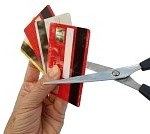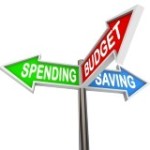 Most people experience financial trouble at some point in their adult lives. And this is often at least partially due to the fact that many of us are never taught how to properly manage money. Over time, bad decisions can turn into bad habits where spending and saving practices are concerned. But you can break the cycle. Here are some tips that should help you to break your bad money habits.
Most people experience financial trouble at some point in their adult lives. And this is often at least partially due to the fact that many of us are never taught how to properly manage money. Over time, bad decisions can turn into bad habits where spending and saving practices are concerned. But you can break the cycle. Here are some tips that should help you to break your bad money habits.
Track spending. You can’t possibly hope to break your bad habits without awareness. You probably have some inkling of what you’re doing wrong, especially if you like to shop without stopping to consider whether you really need the items you’re purchasing. And to be honest, one of your worst habits could be shopping without oversight simply because you know good and well that stopping to think about your purchases would sour the shopping experience. When you truly track your spending you can’t help but see where you’re making mistakes when it comes to unnecessary purchases. So becoming more aware is an essential part of determining what your bad habits are so that you can address them accordingly.



